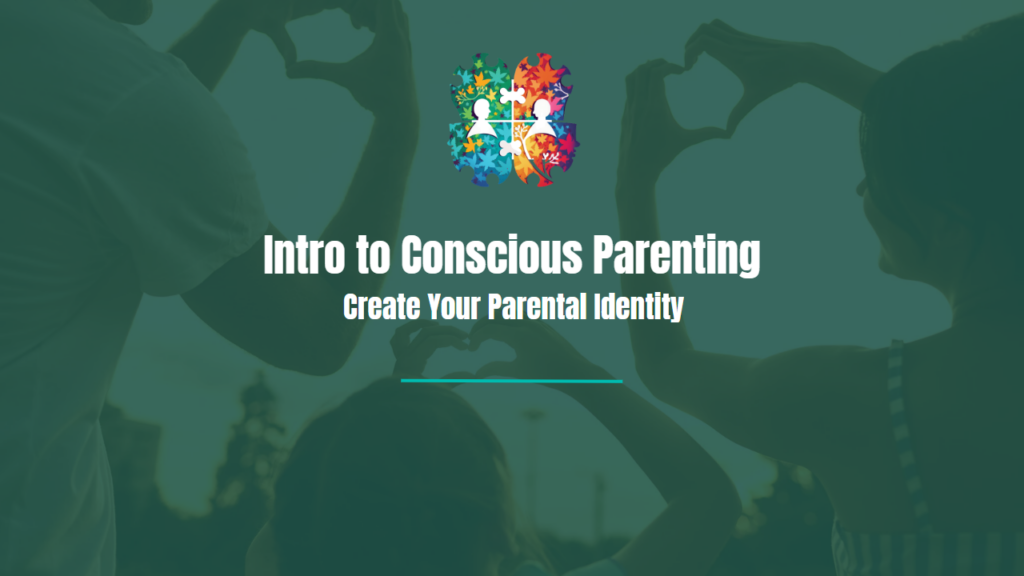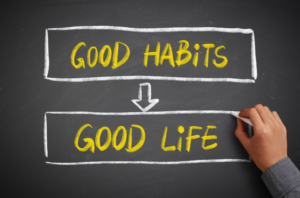Discover the power of conscious parenting and transform your relationship with your children. This blog series combines insights from Stephen Covey’s ‘7 Habits’ and BJ Fogg’s ‘Tiny Habits’ to guide you in creating a conscious parental identity.

It’s not easy for parents to reflect on our interactions with children. In our busy lives, we often react automatically, without considering the consequences. Imagine if we could raise our children more consciously and purposefully! In this blog series, we explore the development of a conscious parental identity and setting goals that truly matter. We combine insights from Stephen Covey‘s ‘7 Habits of Highly Effective People’ and BJ Fogg‘s ‘Tiny Habits’ for a practical approach to conscious parenting.
In future blog posts, we will cover diverse topics such as proactivity, the importance of values and priorities, and transforming habits into concrete actions. With each post, we provide one or more templates, making it easy for you to apply the ideas in your daily life.
So, are you ready to learn how to become a conscious parent and bring about positive changes? Let’s embark on this journey together and explore the world of conscious parenting!
Discover Conscious Parenting
Conscious parenting is about taking an active and engaged approach to parenting. It involves identifying your values and living by them. You set goals and make thoughtful decisions. This approach helps you stay aligned with your inner compass and genuinely focus on your children’s needs, emotions, and thoughts. This contrasts with ‘traditional parenting,’ where we often react automatically to situations without considering the underlying values and goals.
We commit to reflecting on our choices, values, and behaviors during every interaction with our children when we practice conscious parenting. This entails paying close attention to what our children say, both verbally and nonverbally. Our responses and judgments are based on a thorough grasp of their needs and our principles.
Adopting this conscious parenting approach offers numerous benefits. For starters, being more empathic and understanding of your children’s feelings and wants can dramatically deepen your bond with them. Additionally, it helps you build a powerful parental identity, where you know what you stand for and why that is. It provides a sense of confidence and calmness, especially in turbulent times. This allows you to make decisions with more confidence and certainty that align with your values and goals.
In the following blog posts, we will cover concepts and strategies to support you in developing a conscious parenting role. We will start by exploring proactivity and the power of making choices before delving deeper into the importance of values and setting both long-term and short-term goals.

The impact of Stephen Covey’s 7 Habits of Highly Effective People on parenting
Stephen Covey’s bestseller ‘The 7 Habits of Highly Effective People’ contains timeless principles for success. These principles are not only relevant for leadership and productivity but also influence parenting. We will focus on the first three habits and their application within conscious parenting.
- Being proactive
Covey emphasizes the importance of proactivity over reactive behavior. Instead of acting from emotions or habits, he advises taking responsibility for your own life and making conscious choices. In parenting, this means taking control of your responses to challenges and stressors during child-rearing. Being proactive increases your awareness, helps you make better decisions, and positively influences others. - Begin with the end in mind
This habit is about having a clear vision and goals for your life. Conscious parenting entails considering the values you want to instill in your children as well as the type of parent you want to be. With your future goals and desired outcomes of your parenting in mind, you make better choices in the present and lay a strong foundation for your children’s future. - Put first things first
Covey stresses setting priorities based on what truly matters. Conscious parenting requires identifying the most valuable aspects of parenting and focusing your time and energy on those. By directing your focus and efforts on what matters, you spend more quality time with your children.
By applying these three habits from Covey’s ‘7 Habits,’ you create the foundation for your parental identity. In subsequent blog posts, we will go into greater detail on the importance of values, goal-setting, and incorporating these habits into your daily life.

The Influence of BJ Fogg’s Tiny Habits on Parenting
Stephen Covey’s ‘7 Habits’ provides an excellent framework for behavior planning and goal-setting. BJ Fogg’s ‘Tiny Habits’ perfectly complements this, converting aspirations – or as he says, aspirations – into concrete behavior and specific habits. Fogg’s approach focuses on creating small, achievable habits that, over time, shape your identity. These small behaviors will greatly help you achieve your parenting goals over time.
Steps to integrate ‘Tiny Habits’ into your daily parenting life:
- Determine your aspirations
Reflect on your vision and goals for parenting, as determined in habit 2 (‘begin with the end in mind’). What important values and characteristics do you wish to instill in your children? - Translate ambitions into actions
Think of specific actions that align with your aspirations and suit you. These can be simple, small actions that you can easily incorporate into your daily routine. For example, if you want your children to learn empathy and kindness, an action could be to compliment someone together with your child every day. - Make actions achievable and attractive
Ensure the chosen actions are realistic and fit your lifestyle and capabilities. Fogg emphasizes choosing actions you genuinely want to perform, not just those you think you should do. This leads to effective behavior – behavior that works – and that suits you. A winning combination! - Find an ‘anchor’
An anchor or trigger is an existing habit or event that serves as a reminder to perform your new action. If your new action is, for example, to read with your child daily, your anchor could be doing this immediately after dinner. - Monitor and adjust
Keep track of your progress. Be willing to make adjustments if necessary. If you discover that one behavior isn’t working, try another until you find a routine that works for you and your family.
By applying these steps, you convert your aspirations into habitual behavior. Over time, this will shape your parental identity. Together with the principles from Stephen Covey’s ‘7 Habits,’ this approach provides a powerful framework for developing conscious parenting.
Conclusion
Time slips through our fingers incredibly fast. Before we know it, our children are grown up. That’s why it’s essential to be alert and purposeful during their upbringing. We can only do this if we have a vision and a plan. You lay a firm basis for their future and the bond you make together with a well-thought-out approach and clear ideals. You have the authority and obligation to choose the type of parent you want to be. You have the ability to pick which ideals to instill in your children. We will walk you through this process in the next seven blog pieces so that you can pursue mindful and purposeful parenting. This will surely benefit both you and your children in the long run.
Do you want to read more?
* Sponsored link: On this blog, I promote books that I consider valuable. As an Amazon associate, I earn from qualifying purchases.








